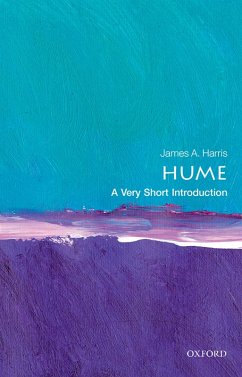David Hume, philosopher, historian, economist, librarian, and essayist, was one of the great figures of the European Enlightenment. Unlike some of his famous contemporaries, however, he was not dogmatically committed to idealised conceptions of reason, liberty, and progress. Instead, Hume was a sceptic whose arguments questioned the reach and authority of human rationality, and who put the rivalrous passions of commercial life at the centre of his theory of human nature. He believed that the modern world was in many ways superior to the ancient world, but was acutely conscious of the threats to peace and progress posed by bigotry, factionalism, and imperialism. Today Hume's works continue to speak to us powerfully in an age of instability and uncertainty. This Very Short Introduction presents a balanced account of Hume's thought, giving equal attention to his work on human nature, morality, politics, and religion. Weaving together biography, the historical context, and a thoughtful exposition of Hume's arguments, James A. Harris offers a compelling picture of a thinker who had no disciples and formed no school, but whom no one in his own time was able to ignore, and who has since become central to modern philosophy's understanding of itself.
Very Short Introductions: Brilliant, Sharp, Inspiring ABOUT THE SERIES: The Very Short Introductions series from Oxford University Press contains hundreds of titles in almost every subject area. These pocket-sized books are the perfect way to get ahead in a new subject quickly. Our expert authors combine facts, analysis, perspective, new ideas, and enthusiasm to make interesting and challenging topics highly readable.
Dieser Download kann aus rechtlichen Gründen nur mit Rechnungsadresse in A, B, BG, CY, CZ, D, DK, EW, E, FIN, F, GR, HR, H, IRL, I, LT, L, LR, M, NL, PL, P, R, S, SLO, SK ausgeliefert werden.









